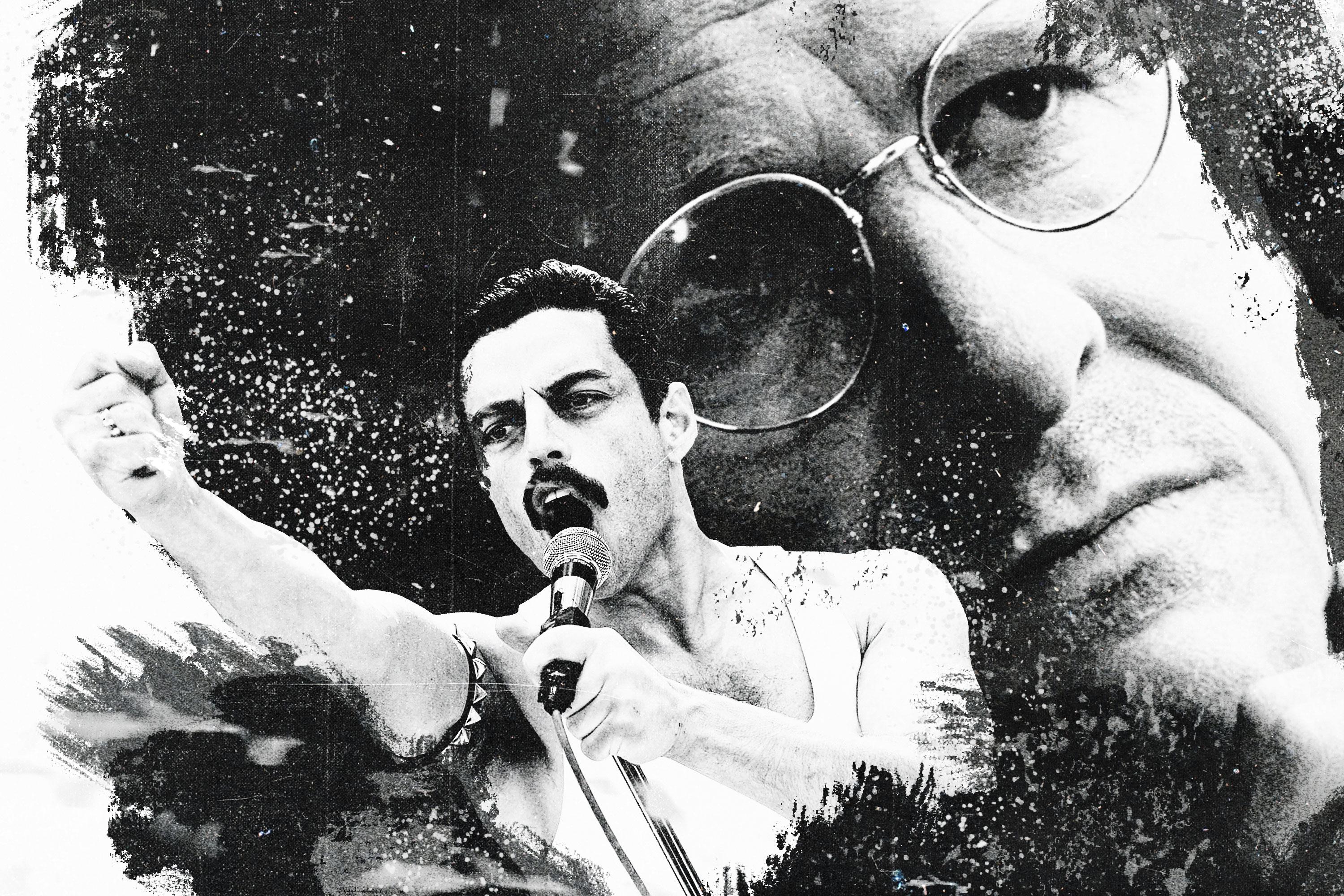
There is a world in which Thursday morning’s Golden Globes nominations matter even slightly to the Oscar race. I don’t think we live on it. There were choices that felt scientifically engineered to create pointy-headed concern (no Nicholas Britell for Best Score?!), handicapper’s anxiety (Vice, considered a long shot, led all films with six nominations), and even something bordering on outrage (due to bizarre internal rules, Alfonso Cuarón’s Roma was left out of Best Drama in favor of [dramatically readjusts glasses] Bohemian Rhapsody?). But getting bent out of shape about the Golden Globe Awards is akin to losing it over the Gold Glove Award—prizes decided on by small factions with ill-defined parameters and major biases tend to be carnival sideshows. We pay attention to the Globes because they’re a good party—the “fun” awards show—and because the train wreck of the noms is part of the fun.
The nominees for the 76th edition of the Hollywood Foreign Press Association’s annual awards, perhaps unfortunately, were not a total joke. Remember, we’re less than 10 years removed from The Tourist receiving not one, not two, but three nominations. It would almost be better to see The Happytime Murders and Gotti be recognized this morning, then the Globes could rightfully and fully transform into pop culture’s Skip Bayless. Instead, what we have is some light intrigue and a sprinkling of travesty.
Why this sort of matters: At the very least, surprising recognition begets continued conversation, which signals to Academy of Motion Picture Arts and Sciences members that a movie is worth not forgetting. Five nominations for Green Book, The Favourite, and A Star Is Born certify their standing among the big five at this year’s Oscars. But Vice, Adam McKay’s still-unreleased and still-embargoed portrait of Dick Cheney, presents a unique Globes case. McKay’s last film, The Big Short, received four Globes nominations, on its way to five Oscar nods. But Vice’s reception among some critics has quietly been a bit mixed, and its fate in the coming months is one of the few unknowns in the race. Christian Bale and Amy Adams will almost certainly receive nominations. But Sam Rockwell, who dominated last year’s awards season, over Sam Elliott in A Star Is Born, a movie retrofitted for Globes love? I don’t even know what to make of that. It’s illogical decisions like these that make the Globes more of a curio than a bellwether.
There were nice things here. While Ethan Hawke, a national treasure, was snubbed for his extraordinary work in First Reformed, at least it came in the form of a nomination for the gifted Lucas Hedges for his strong and subtle performance in Boy Erased. For months I’ve felt there should be a Four Weddings and a Funeral–esque campaign for Crazy Rich Asians, and a nomination for Best Motion Picture – Musical or Comedy as well as a nod for Constance Wu for Best Performance by an Actress in a Motion Picture – Musical or Comedy is welcome. As is the nomination for the wonderful Elsie Fisher in the same category for Eighth Grade, a movie that I have thought has an outside chance at a Best Original Screenplay nomination. (The Globes recognizes only five screenplays, rather than divide between original and adapted.) Likewise Rosamund Pike’s recognition for A Private War, a hardened, fearless performance as the late war correspondent Marie Colvin. And hosannahs for my guy Robert Redford, 82 years old and charming as all get out in The Old Man and the Gun. Age ain’t nothin’ but a number.
But about Roma: the HFPA—a literal foreign voting group—disallows foreign films from competing in the Best Motion Picture races. For Cuarón to be honored in both the screenwriter and the director categories but not Best Motion Picture – Drama is straight-up weird. It’s one more needlessly strange tic in an awards show that has no idea how to organize itself. Bohemian Rhapsody is the biggest beneficiary here, but it’s a movie that I suspect has no chance beyond Rami Malek as Best Actor come February. If Beale Street Could Talk and BlacKkKlansman also gain from Roma’s absence. Spike Lee’s film earned four nominations, and has been building steam since August as a movie of the moment, powerfully designed to clear two Oscar hurdles: recognize a master in the back half of their career and acknowledge the difficulties of our modern life with a historical tale. There is bizarre dissonance in If Beale Street Could Talk and BlacKkKlansman and Green Book, three films about race and our inabilities to connect, colliding during an awards season in which A Star Is Born—and now, maybe, Vice—seems poised to dominate. What does it say that movies that want to reflect our times and our frustrations and our divisions can’t hold a candle to Hollywood mythmaking? It says it’s officially awards season.

